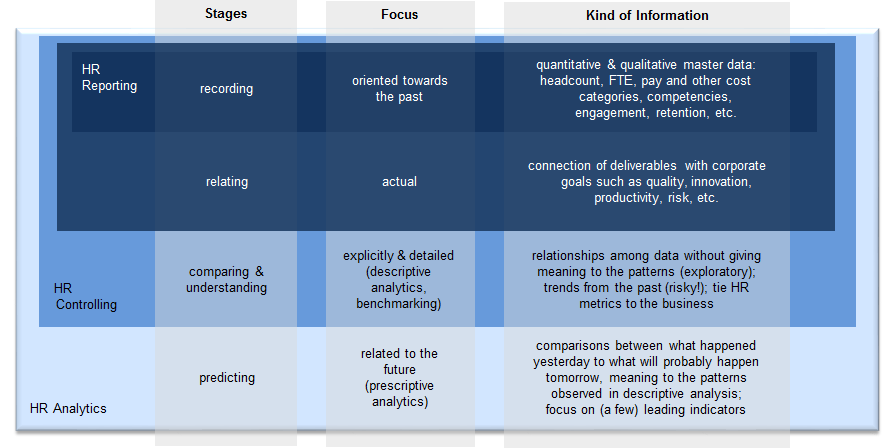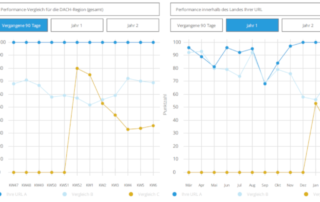Workforce Analytics contains techniques to help articulate the impact of workforce investments, as well as identify future trends that will influence both business and workforce decisions.
As the critically decisive resource for project success, planning, management and monitoring of human resources demands increased attention. Contrary to “neighboring disciplines”, in which quantitative measurement parameters are sufficient, workforce analytics requires additional qualitative parameters, such as satisfaction and commitment.
Unfortunately, in common practice however, HR management is still not yet as advanced as other business disciplines – there is a discernible inability to collect, analyze and utilize data. Managers also report a lack of trust in HR when it comes to mastering the challenges of human capital in the 21st century. Generally the following are true:
- In the quantitative area, data regarding employee numbers, capacities and costs dominate, with the costs usually also appearing in the HR plan.
- In the qualitative area, many companies are still in the early phases of development, while others have not even started venturing into these less traditional measurement parameters.
- Data and information usually pertain to the past and the future.
- External data, e.g. regarding relevant markets and customers, as well as financial data are often not included in HR management.
- Comparative numbers regarding the industry, region and companies of comparable size are scarce.
The following stages of expansion can principally be distinguished:

We are involved with companies of all sizes across several maturity levels and support them in their expansion into the predicting and strategy-implementing phase.
We thereby distinguish the following main topics:
- (Internal) customer perspective, requirements of the C-level;
- Operative HR controlling: monitoring and reporting;
- descriptive workforce analytics (low maturity levels): HR scorecards and dashboards, HR Market data/HR Benchmarks and correlations; and
- predictive and prescriptive workforce analytics (high maturity levels): causalities, HR risk management and human capital analytics.
For years STRIMgroup has been organizing high level specialized conferences and hands-on workshops in the area of workforce analytics.
STRIMservices offers individualized system support to small enterprises. Furthermore we collaborate with various partner companies, who take care of the technical aspects of the projects.
Dr. Volker Mayer
Gütschstrasse 22, Switzerland-8122 Binz
Tel.: +41 43 366 05 58
Morgenröte 8a, Germany-68305 Mannheim
Tel.: +49 621 7481 742, Fax: +49 621 7481 741
E-Mail: volker.mayer@strimgroup.org
Meeting the shortage of skilled workers
In the course of several HR audits over the last few months, I have repeatedly thought about how employers can address the shortage of skilled workers. […]
Sustainability: are you reporting yet?
Alongside the annual report, sustainability reporting is now the most important element of a company’s information policy. […]
Disruption succeeds with STEM skills
The trigger for this article is a study by the German Economic Institute from 2021 (in German), which I recently read and which has been on my mind ever since. […]
Blog ranking of strategy consultants
In the circle of strategy consultants, the STRIMgroup is a niche. […]
Top priorities and action fields in 2022
The first few weeks of the new year are over. We have arrived in the year 2022. What are our priorities? Where are we still looking for the right way? […]






